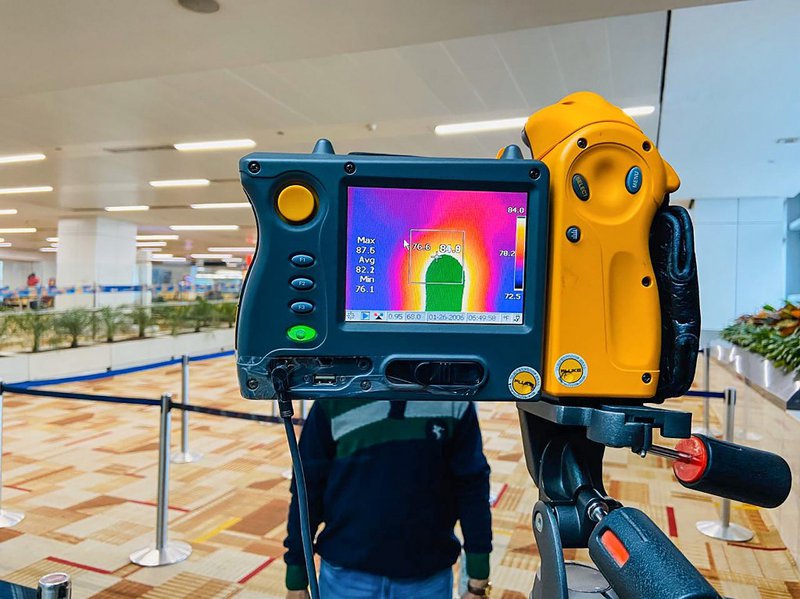Coronavirus: main measures taken in Europe
Updated | By AFP
Quarantine, schools, shops and borders closed, gatherings banned, here are
the main measures being taken in Europe to fight the spread of the novel
coronavirus.

- Confinement -
Italy and Spain, Austria and the Czech Republic, have taken strict confinement measures. Their citizens can go out only to work, for health reasons or to buy food.
France, already deprived of most public places, are expecting more radical measures. President Emmanuel Macron is set to address the nation at 1900 GMT.
The British government has asked people displaying symptoms to remain at home for a week.
READ: US begins first human trial of coronavirus vaccine
Greece has imposed a 14-day quarantine on all arrivals.
People returning from the main coronavirus hotspots must stay at home for two weeks in Croatia, Estonia, Latvia, Norway, Russia and Slovakia. Germany has recommended the same.
- Borders controlled or closed -
Spain announced Monday it would close its land borders at midnight.
Germany has stepped up border controls with Austria, Denmark, France, Luxembourg, and Switzerland, only allowing through goods transit and border workers.
France is to bolster checks with Germany, while not closing its border completely.
Cyprus, the Czech Republic, Denmark, Lithuania and Slovakia have announced the closure of their borders to foreigners, with Slovakia making an exception for Poles.
Russia has closed its land borders with Norway and Poland.
Austria has almost entirely closed its border with Italy.
- Schools closed -
Schools, universities and creches are closed in Austria, Belgium, Bulgaria, Croatia, the Czech Republic, Denmark, France, Germany, Greece, Ireland, Italy, Lithuania, Luxembourg, Norway, Poland, Portugal, Romania, Russia, Slovakia, Slovenia, Spain, Switzerland, Turkey and Ukraine.
- Gatherings banned -
In Belgium, Cyprus and Italy all gatherings have been banned.
Gathering of more than five people are banned in Austria and the Swiss canton of Geneva, while the Czech Republic has prohibited meetings with more than 30.
ALSO READ: Italy hits one-day record with 368 new coronavirus deaths: official data
Denmark, France, Iceland, the Netherlands and Switzerland have set the threshold at 100 people, as have Hungary and Romania for closed meetings.
Finland and Sweden have set the bar at 500 people.
Germany has cancelled non-essential events gathering less than 1,000 people, a threshold also in force in Poland, Portugal and Romania.
Moscow has banned meetings of more than 50 indoors and set limits on outdoor events.
- Restaurants and shops closed -
Non-essential businesses have been closed in Andorra, Austria, Bulgaria, France, Germany, Greece, Italy and Spain.
In Belgium, nightclubs, cafes and restaurants are closed, as are pubs in Ireland.
Luxembourg and the Netherlands have ordered the closure of all places and businesses open to the public.
Greece has closed its museums and archaeological sites.
- Transport disrupted -
France has announced a gradual reduction of long-distance transport, including buses, planes and trains.
In Germany regional rail transport will also be heavily reduced.
Rome's second airport, Ciampino, is closed, while Fiumicino is to close one of its three terminals from Tuesday.
Poland has cancelled all domestic flights.
Ukraine has suspended air links and Russia has reduced them with the European Union.
Austria has suspended rail links with Italy and air links with France, Italy, Spain and Switzerland.

Show's Stories
-
5 moments you can't miss from East Coast Breakfast
Viral moments that we had to re-share...
East Coast Breakfast an hour ago -
SA cinemas jack up prices but can they win you back in other ways?
Cinema ticket prices are soaring but can blockbusters and live events lu...
Stacey & J Sbu 17 hours ago